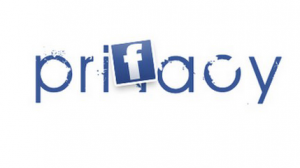Privacy? Who cares?
What is the first thing you do when you wake up? For a huge amount of students the answer to this question is: hitting Facebook, even while still in bed. On the 4th of October 2012, Mark Zuckerberg informed the world by writing a Facebook message that more than one billion people are actively using Facebook each month. Because of this immense popularity, especially amongst university students, the social network site received a lot of media and research attention. A significant part of these media studies and news stories focused on the dangers and negative consequences of disclosing personal information on social network sites. A great number of incidents, concerning privacy challenges of social network sites, have certainly damaged the reputation of Facebook. Nevertheless, Facebook still succeeds in attracting more users and despite the raised concerns, research has showed that a lot of students remain unconcerned about disclosing personal information on these sites. Researchers and new media professionals seem to be struggling with this phenomenon. Are people not careful because the options for privacy settings on the interface are too confusing or time-consuming? Are people merely unaware of what information they are disclosing and the potential dangers thereof, or do they simply not care enough?
 Redefining privacy
Redefining privacy
The existence of social network sites, such as Facebook, has altered our perception and definition of privacy. Because of its open, decentralized and interactive character, people can share any information and they’re being encouraged to do so. Social network sites, such as Facebook, want you to share personal information and the average person is happy to do so. People seem to value privacy less in the digital age by disclosing more on social platforms than they would in their offline social environment. The boundaries between different social groups that exist separately in one’s offline world coexist on social network sites like Facebook. Everything merges: work relations, study groups, family members, close friends and people you might have just met once. All these different groups are able to take a peek into your personal life and even your mom is able to see your nightly escapades or inappropriate posts. Indeed, you can organize/manage your friends by putting them into different groups, but if we’re being honest, who really uses that option?
Research project
In a recent discussion in my new media practices course, the thought of students being unconcerned about what they were revealing on their social network sites was emphasized. My fellow students seemed to have few concerns about the personal information they were disclosing online. This observation made me wonder: how are New Media students handling their privacy settings on Facebook? It led to the idea to set up a small research project to find out what kind of information the current group of New Media MA students at the UvA were disclosing on their Facebook profiles. I thought this was an interesting case because if you’d expect any group of people to be careful about disclosing personal information online, I reckoned it would be New Media students. Simply because it is our field of study, and we are therefore so hyper aware of the impact that the transformation from offline to online communication has on issues such as control over personal information. Therefore, assuming that New Media students are so aware, I thought it could give some insight on the questions just discussed. Regardless of the discussion in class, my expectations were that the profiles of my fellow new media master students would be set rather private and they would not reveal much personal information.
By using the research method of content analysis, I looked up the profiles of all sixty members of the UvA New Media MA group page. I basically counted how many times the students allowed a non-friend to view: (1) more than one profile picture, (2) pictures of other albums, (3) wall posts, (4) favorites (likes), (5) contact information, (6) work and education information and (7) relationship and family information.
Findings
Surprisingly, I could still find out quite a lot about my classmates. Out of 35 percent of the students I could browse through more than one profile picture and in 26,6 percent of the cases, I could view photos from other albums including, yes, party pictures. On nearly half of the profiles I was able to view and browse through their list of friends. The two aspects that people were most open about were their favourites and where they lived. I could learn quite a lot by browsing the students’ interests in terms of liked pages (favourites). Also, in more or less 60 percent of the cases I could view their current place of residence and information on work and education. Shockingly, 13 profiles didn’t have their wall posts protected. What my study mates do seem to be careful about is to reveal contact information. I couldn’t find any private e-mail addresses, phone numbers and so on. Also, only 6 profiles showed information on their relationship status or family members.
Conclusion
The question remains, why do students seem indifferent to the disclosure of personal information? How important is it to fine-tune your Facebook settings? And, what does this new openness mean to society and our concept of privacy? Some skeptics claim that ‘privacy is dead’ or ask questions such as ‘does privacy in the digital age still exist?’ I do think that there seems to be a culture of oversharing and therefore I believe the privacy debate is of great importance; but I also agree with Jon Friedman’s simple message (as presented in video).
As Dan Fletcher argues in his article ‘how Facebook is redefining privacy’, we shouldn’t forget that people actually like to share. We like to reveal personal information because it’s an important part of building relationships, self-esteem and the human need for self-expression. Nearly one billion unique images are being uploaded every week that range from ultrasound photos of unborn babies to pictures of nights we hardly even remember. We complain about confusing interface designs, poor or time-consuming privacy settings on social network sites, but in fact we want to click the Like button, even though we’re conscious of the fact that data is being collected with little transparency, and we want to share intimate moments, even if Facebook will be the owner of that moment after uploading the image. I think Zuckerberg is right when he says the way people think about privacy is changing and that what people want isn’t complete privacy nor do they want outright secrecy. We want to share and we do not care.
